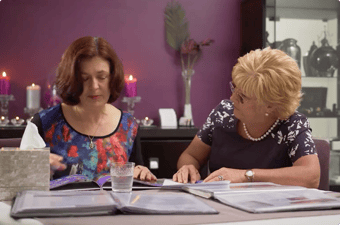Social networks have opened new doors for staying in touch with our family and friends. However, what happens to the collection of photos, posts and videos of our family and friends when our loved ones have passed? Besides using it as a resource for planning the funeral of your loved one, the deceased social media can be closed or left open. This will depend on your families personal choices and the social media channels policy.
On its own, Facebook has approximately 15 million active users in Australia, therefore Social Media presents a growing concern for many Australian families when dealing with the passing of a loved one. Thankfully, the Social Networks have recently updated their policies to ease and manage the social media accounts of those who have passed away. We’ve created a short help guide if you’re feeling a little overwhelmed when you have to close down deceased social media accounts.
Closing down Social Media accounts of the deceased
This platform is conscious about how hard is to process the death of our loved ones and it has introduced a revolutionary idea: turning the profile into a social memorial. Friends and families are able to share the loss and provide support by contributing with messages of love, pictures and memories. This allows you not only to commemorate, but to feel the warmth of your close ones regardless of location and time.
The management of the memorial is easy: only you are in charge. By presenting a proof of death, Facebook gives you complete access to the profile. If you wish not to share the loss online you can also deactivate the account. It is totally understandable if you want to keep it private in between close friends and family.
Gmail, Buzz, Blogger and anything tied to a Google account
One of the main advantages you’ll find in Google’s policies is that the one account will generally cover all services. This makes the process much easier. In one procedure, you can access and deactivate all the social platforms that are tied to the same user.
Unlike the social platforms above, Twitter won't give you access to the account to manage it regardless of your relationship with the user. But don’t worry - you can send a personal request to archive the tweets and easily deactivate the account.
As Instagram is owned by Facebook, their policies are very similar. You will be able to close down and manage the account by crediting your relationship with your family member or friend. All the images are in your control. You might like to keep the account open and regram photos your loved one is tagged in as a legacy and memorial platform, this is entirely up to you.
Like Twitter, you won’t be able get the login information of deceased user. However, you will always be able to deactivate the account by a personal request.
SnapChat
There are no clearly outlined policies here for closing down a SnapChat account. This will likely change as the platform evolves. At current the advice is to have this password saved somewhere that your loved ones can access.
Sharing pictures and stories of our deceased loved ones on social media can be a beautiful thing and helpful to the mourning process. In personal experience, both closing the account and keeping it open as a place for memorial is beneficial to those who are grieving. Social platforms have these policies to help us with the increasingly public process of grieving and make it a bit easier for everyone. To keep in contact and join a community of people experiencing the new world without their loved one, join us on Facebook. We post useful articles and supportive information for the times you need it.









